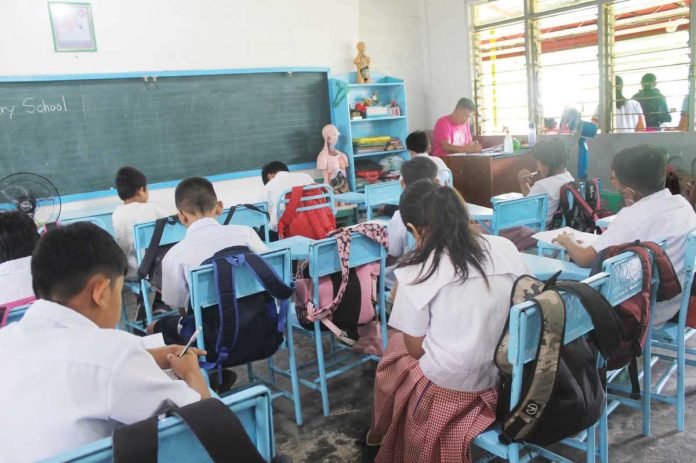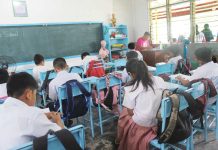
ILOILO – In response to the Philippine Statistics Authority’s (PSA) recent report tagging Iloilo Province as having the lowest functional literacy rate in Western Visayas, the Department of Education (DepEd) – Schools Division of Iloilo countered with its own data, showing what it called “significant gains” in both literacy and numeracy among learners in the 2024-2025 school year.
The PSA’s Functional Literacy, Education, and Mass Media Survey (FLEMMS), released June 5, showed Iloilo with only a 68.4% functional literacy rate among individuals aged 10 to 64 — the lowest among all provinces and highly urbanized cities in the region.
Functional literacy, as defined in the FLEMMS, refers to an individual’s ability not just to read and write but also to compute and comprehend information from various sources — essential skills for daily life, employment, and civic participation.
While Iloilo had a basic literacy rate of 88.6%, the stark 20-point gap revealed critical issues in comprehension, critical thinking, and the practical application of reading, writing, and math skills.
“This is a wake-up call for stakeholders in education and local governance,” said PSA Region 6 chief statistical specialist Marlene Alviar. “While basic literacy remains relatively high, functional literacy — which includes comprehension and application — is where we are falling short.”
In a press release issued shortly after, DepEd-Iloilo emphasized that its flagship learning recovery initiative, Tib-ong Bumulutho, had produced measurable improvements in student performance in reading and numeracy.
Implemented in School Year 2023-2024 and strengthened further in School Year 2024-2025, the program was aligned with the division’s Strategic Instructional Roadmap led by Schools Division Superintendent Dr. Ernesto F. Servillon Jr.
“We have seen a dramatic reduction in the number of learners at the frustration reading level, particularly in early grades,” said Servillon.
Among Key Stage 1 learners (Grades 1–3), the proportion of frustrated readers dropped from 26.42% to 7.71%, meaning over 92% of pupils are now reading at or near grade level.
In Key Stage 2 (Grades 4–6), 82.06% of learners were assessed to be on or above grade level, while Key Stage 3 (Grades 7–10) recorded a 17.97-point reduction in frustration level, with 76.02% now at the instructional or independent reading level.
Literacy assessments conducted included the Comprehensive Rapid Literacy Assessment (CRLA), Philippine Informal Reading Inventory (Phil-IRI), Enhanced Regional Unified Numeracy Test (E-RUNT), and Rapid Math Assessment (RMA).
DepEd Iloilo also reported that as of the latest tally, 450 schools in the province have zero non-readers.
In numeracy, the division recorded an 8.42% overall drop in non-numerate learners. The most notable gains were in Grade 7, which saw a 29.21% reduction. Grades 1–6 maintained over 90% achievement in numeracy benchmarks, although Grades 5 and 6 showed minimal reductions of 2.77% and 1.68%, respectively, highlighting areas needing further support.
According to Servillon, the improvements were made possible through strengthened collaboration among DepEd-Iloilo, local government units, state universities and colleges, and private sector partners.
Key interventions included teacher capacity-building in remedial strategies, use of Oral Graphic Symbolic Language (OGSL) materials, the “Reading Links” program sponsored by the Iloilo provincial government, and the structured implementation and monthly monitoring under the ASSIST Framework.
The ASSIST program aims to:
* Accelerate performance in literacy and numeracy;
* Strengthen learning-focused interventions;
* Synergize efforts to protect instructional time;
* Intensify meaningful engagement through quality-assured practices;
* Standardize assessment to boost 21st-century skills;
* Trailblaze supervisory and technical assistance mechanisms.
Despite the gains, Servillon acknowledged the need to intensify efforts, particularly at the intermediate and secondary levels.
“While celebrating these achievements, SDO Iloilo will double down on interventions for Key Stage 2 and secondary levels, building on what works and engaging more partners,” he said.
The 2024 FLEMMS serves as a benchmark for the country’s progress toward Sustainable Development Goal 4.6.1, which aims to ensure that all youth and a substantial portion of adults achieve literacy and numeracy. It is conducted every five years as mandated by Executive Order No. 352./PN






